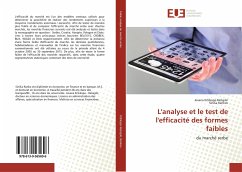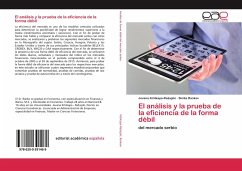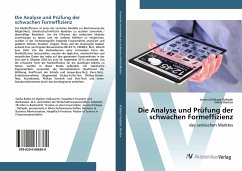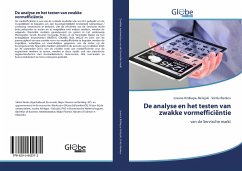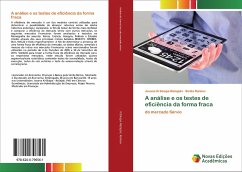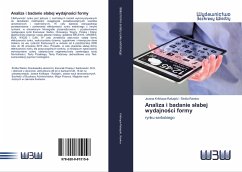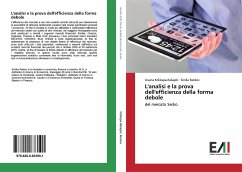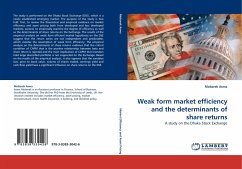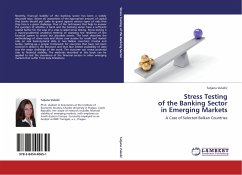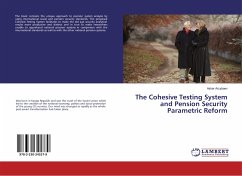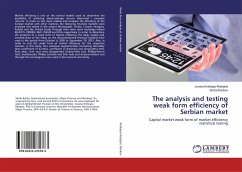
The analysis and testing weak form efficiency of Serbian market
Capital market weak form of market efficiency statistical testing
Versandkostenfrei!
Versandfertig in 6-10 Tagen
51,99 €
inkl. MwSt.

PAYBACK Punkte
26 °P sammeln!
Market efficiency is one of the central models used to determine the possibility of achieving above-average returns (abnormal / excessive returns). In order to test more reliably and compare the efficiency of the Serbian market with other markets, the following financial markets were analyzed and tested in the subject Monograph: Serbia, Croatia, Hungary, Poland and the United States through their main stock exchange indices BELEX15, CROBEX, BUX, WIG20 and DJIA respectively. In order to determine the presence of a weak form of market efficiency, the daily, weekly and monthly data of the index o...
Market efficiency is one of the central models used to determine the possibility of achieving above-average returns (abnormal / excessive returns). In order to test more reliably and compare the efficiency of the Serbian market with other markets, the following financial markets were analyzed and tested in the subject Monograph: Serbia, Croatia, Hungary, Poland and the United States through their main stock exchange indices BELEX15, CROBEX, BUX, WIG20 and DJIA respectively. In order to determine the presence of a weak form of market efficiency, the daily, weekly and monthly data of the index on the aforementioned financial markets were used in the period from October 4, 2005 to September 30, 2015. Also, in order to test the weak form of market efficiency for the respective markets, in this study, four statistical segments/tests containing Normality tests (coefficient of kurtosis, coefficient of skewness and Jarque-Bera test), Runs tests, Unit root tests (Augmented Dickey-Fuller test, Phillips-Perron test), Kwiatkowski, Phillips Schmidt and Shin test) and Autocorrelation test through the correlogram were used in this research and study.



